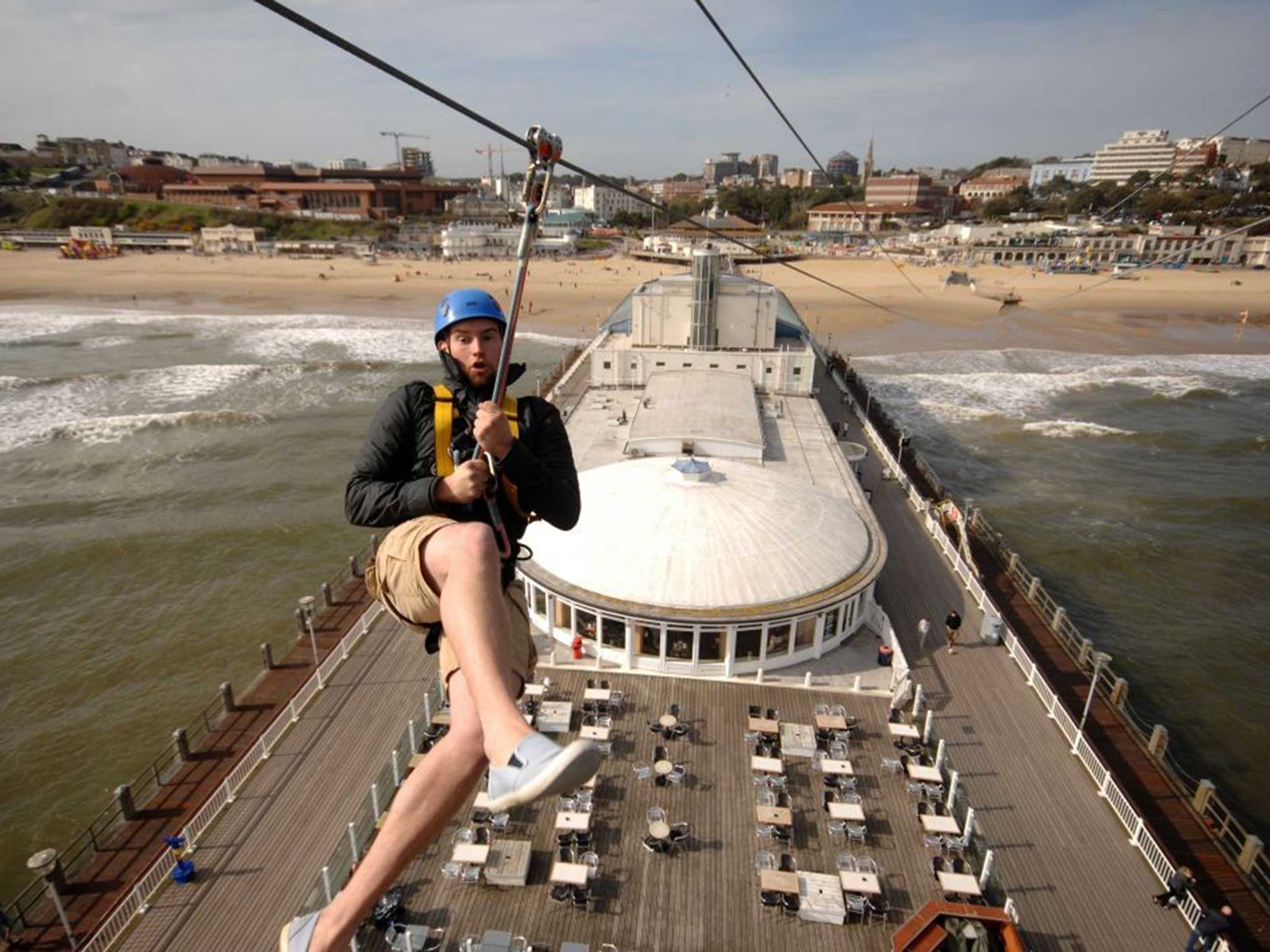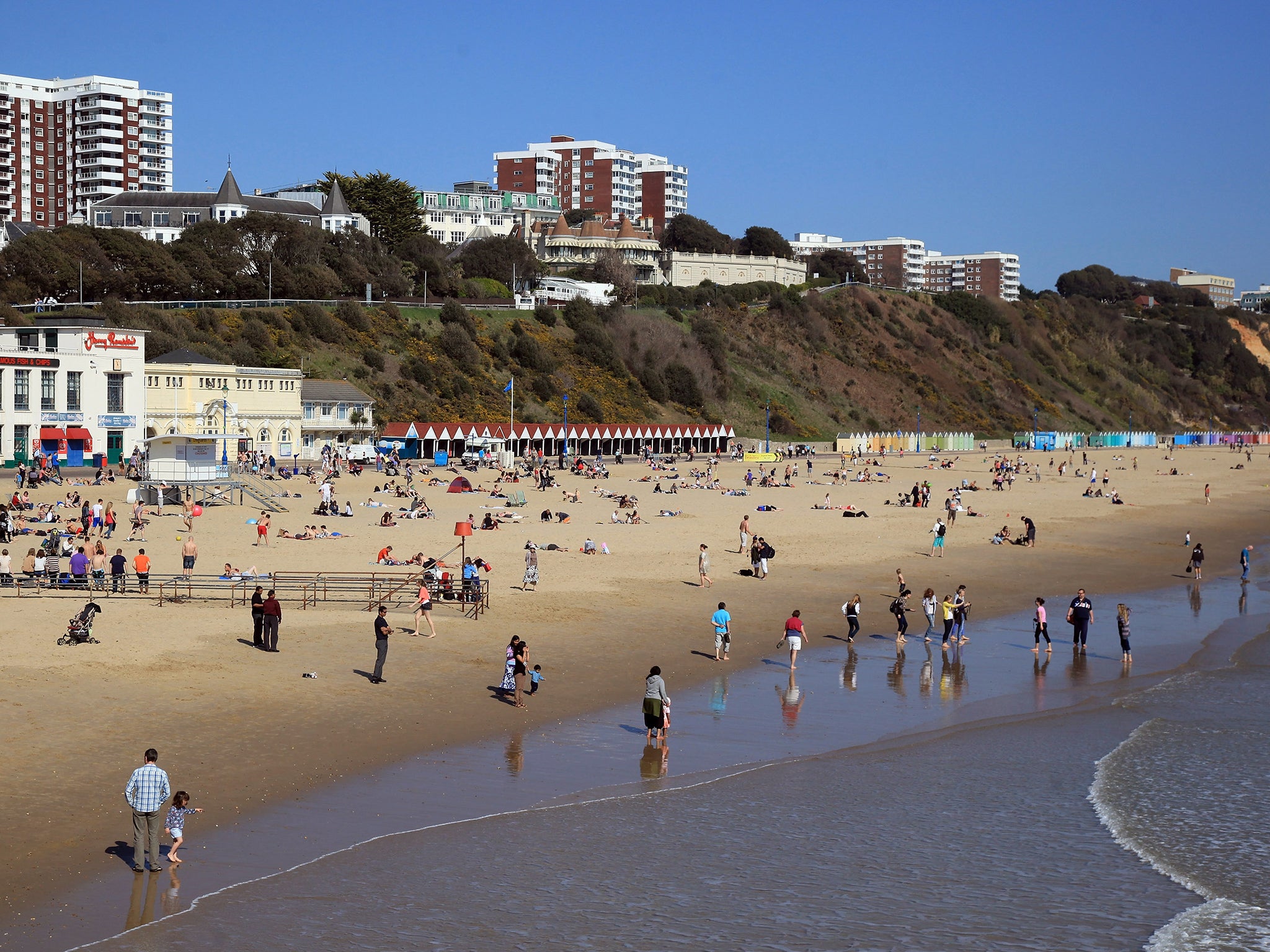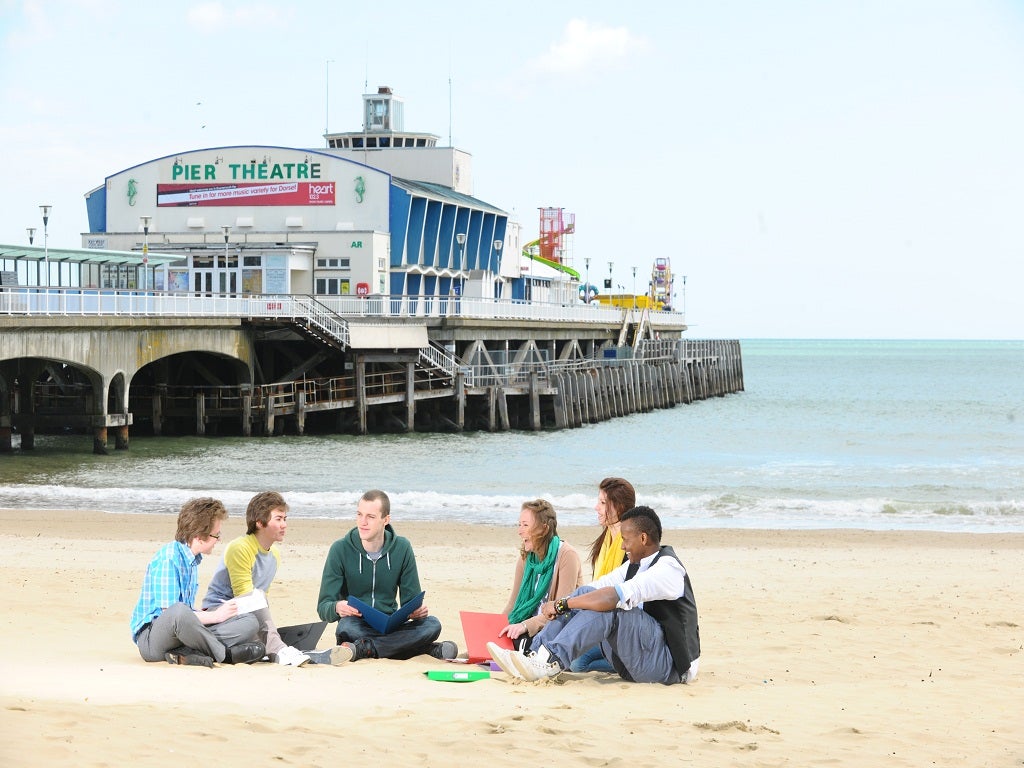How Bournemouth avoided the decline afflicting towns and seaside resorts all over Britain
The town’s football team and economy are booming - Adam Lusher hears what has been going right in Dorset

Steve Fletcher remembers the cross coming over, the ball being only half cleared: “I just felt it was my time,” he said yesterday.“The ball fell to me. I chested it down and smashed it into the roof of the net.”
His winning goal, at the age of 37, to confirm the 2-1 victory over Grimsby had saved AFC Bournemouth; rescuing it from relegation out of the Football League.
But if you had told him, that day in April 2009, that now he would be sitting next to what is the Steve Fletcher stand, discussing Bournemouth’s possible entry into the “dreamland” of the Premier League, “I would have laughed at you. The whole town would have.”
With three games to play, and financial woes resolved, Bournemouth are this morning sitting in one of the two automatic promotion spots in the Championship, contemplating elevation to the top tier of English football for the first time in their history. And the football club’s fortunes have mirrored the town’s.

Bournemouth the town was “Very Sleepy Hollow. Stuck in the 1960s, a retirement area. The attitude was ‘We mustn’t do anything to rock the pensioners.’ There was no ambition,” says Nicky Smith, 63, one of the first ‘Cherry Girls’ who walked round the ground in miniskirts and white boots, selling jackpot tickets. But now, said Mrs Smith, with the Premier League beckoning, “The whole place is electrified.” In more ways than one.
“The football club’s time has come,” said Matt Desmier, 41, a man often credited with doing much to kick-start Bournemouth’s new, booming digital, creative and technology sector. “And so has the time for Bournemouth’s digital economy.
“People are abandoning this perception of Bournemouth as a Victorian seaside town where the blue-rinse brigade go to retire and die. They are realising it is a cosmopolitan multi-national community with a booming digital economy.”
In 2011, Mr Desmier founded Silicon Beach, as a two-day conference attracting key players in the digital economy to Bournemouth. Now it has grown into a year-round series of events.
He can reel off statistics showing that Bournemouth is not just shaking off the Sleepy Hollow image, but also avoiding the decline afflicting other South Coast towns and seaside resorts all over Britain.

In February, the largest ever study of the UK’s digital sector found that Bournemouth had the fastest-growing digital economy of anywhere in the UK, with digital start-up incorporations rising by 212 per cent between 2010 and 2013.
And far from being a blue-rinse Mecca, Bournemouth is, according to the ONS, one of only two places in the country where the population is getting younger, its median age due to fall from 34 in 1992 to 33 and six months in 2037. But you don’t need statistics to see Mr Desmier’s point. You just have to stroll along the pier. In its heyday, the theatre attracted Sid James, Arthur Askey and, starring in Honeymoon Bedlam, Dick Emery.
But with attendances dropping, a bold – and controversial – decision was taken to abandon old-style variety and try something new. The theatre closed and re-opened last June as Rock Reef: indoor climbing walls, high-line aerial obstacle course, vertical drop slide.
And at the end of the pier stands this summer’s innovation: a zipwire for people to “fly” from pier to beach.
It was opened, of course, by Steve Fletcher. For him, it showed the town’s determination not to stand still but to “keep adding to its history.”

David Ford, the co-founder and chief executive of Bright Blue Day, one of Bournemouth’s leading digital marketing and content agencies, was similarly impressed by such ambition.
Showing off his bright open-plan office, complete with wine and prosecco-stocked “collaboration zone”, he said: “I have seen the region transformed – more and more agencies springing up or moving up; talent pouring out of Bournemouth University and Arts University Bournemouth. It’s become a really good hotbed of ideas and talent.”
Mr Ford, who is also the chairman of Silicon South, launched two years ago to promote the Dorset digital economy, said that the organisation had opened offices in San Francisco last autumn.
Mr Desmier played his part too, forging links this year with Silicon Beach Fest in Santa Monica. “I said you’ve got a nice beach, so have we. You’ve got a nice digital marketing community…”
“That would be the ambition,” added Mr Ford. “California is 20 years ahead of us, but we would like to become that kind of internationally recognised beacon of talent. We have all the right ingredients.”
Bournemouth and California didn’t just share booming digital economies. There were lifestyle similarities too.
“I can be wakeboarding at 6am, walking the dog along the beach at 8am, and in the office at 8.30am.” He, like everybody else, mentioned the Bournemouth “microclimate”. Local legend has it that you could drive from the town’s possible new Premier League rivals Southampton where the temperature would be 20C, and get to Bournemouth to find the thermometer reading 23C.
These days the sun always shines. Just listen to the local hero on today’s match against Sheffield Wednesday: “I always think the club is going to win,” said Steve Fletcher, “Just like the town.”
Join our commenting forum
Join thought-provoking conversations, follow other Independent readers and see their replies
Comments
Bookmark popover
Removed from bookmarks